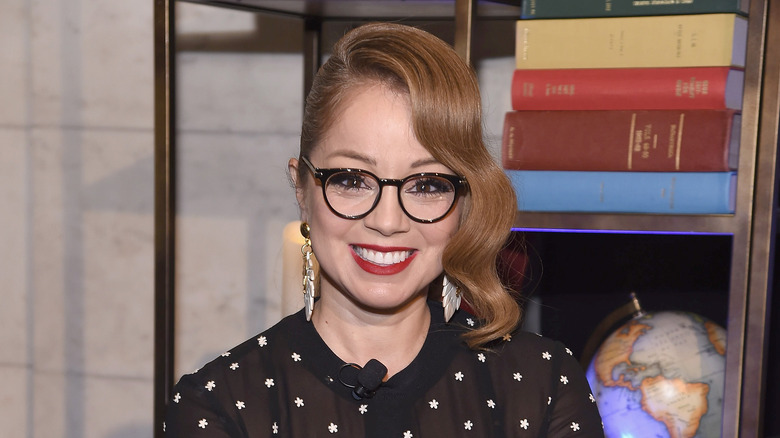Why Marcela Valladolid Struggled To Find Her Voice At Food Network
Marcela Valladolid got her start in the food world by working with her aunt at a cooking school in Baja, Mexico. In 2010, Valladolid began her culinary TV career with "Mexican Made Easy" on the Food Network, featuring her takes on fresh and flavorful Mexican cuisine (via Food Network). In 2014, Valladolid joined the cast of Food Network's "The Kitchen," and while she has always proudly celebrated her culture and background, as the sole Latina voice on the show, she did not always feel comfortable doing so (via Parents).
And it seems she was not alone in that feeling. Other Food Network personalities have come forward to note ways in which the network may have censored them. In an article for The Washington Post, TV producer and host Dan Kohler marveled that Kardea Brown, on her Food Network show "Delicious Miss Brown," was able to discuss slaves and slavery, when years prior the network had prevented him from using the same language. "I was delighted to see and hear [Brown's comments], and not just because of the convergence of culinary content and American history — my own wheelhouse. But I was amazed that she talked about enslavement at all, because for years, Food Network and its associated properties (Cooking Channel and Food Network Kitchen) wouldn't let me make any such mention on its outlets."
But despite Food Network's seeming evolution, their ecosystem remains overwhelmingly white (via Wired).
Marcela Valladolid fought to do things her way
In an interview with Parents about her heritage, cooking, and background, Marcela Valladolid revealed that stereotypes about Mexican cuisine and culture may have led her to feel she had to temper her voice when she joined Food Network.
Valladolid, who from a young age said her mission was to "show what we've got and all that Latinos contribute," said she takes responsibility for holding back when she first started, claiming that she did not feel like she could fight back when trying to push for certain elements with "executives from the most powerful network on culinary TV." But one day she realized that she would rather fight to do things her way than kowtow to what others wanted. "I have nothing but gratitude for that relationship [with Food Network], but there are life cycles to jobs," she explained. "I wanted freedom to do things my way. So one day I said, 'Thank you so much, but no thank you.' And that was it."
Now, Valladolid is expressing herself — and her heritage — in a number of projects, from writing a children's cooking book to doing Zoom cooking classes with her sister Carina. And the response to those classes has been overwhelming. As Valladolid told Parents, the feedback she gets from people is that the pride she has in her culture inspired them to be proud. Mission accomplished.

